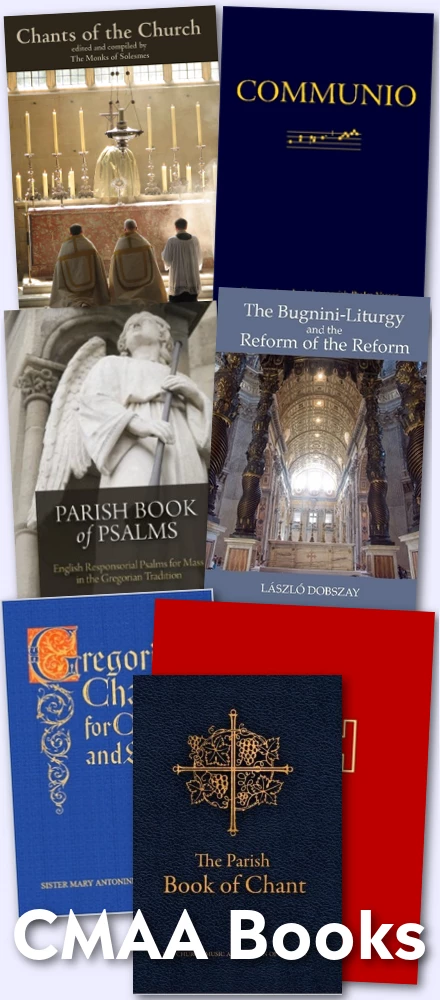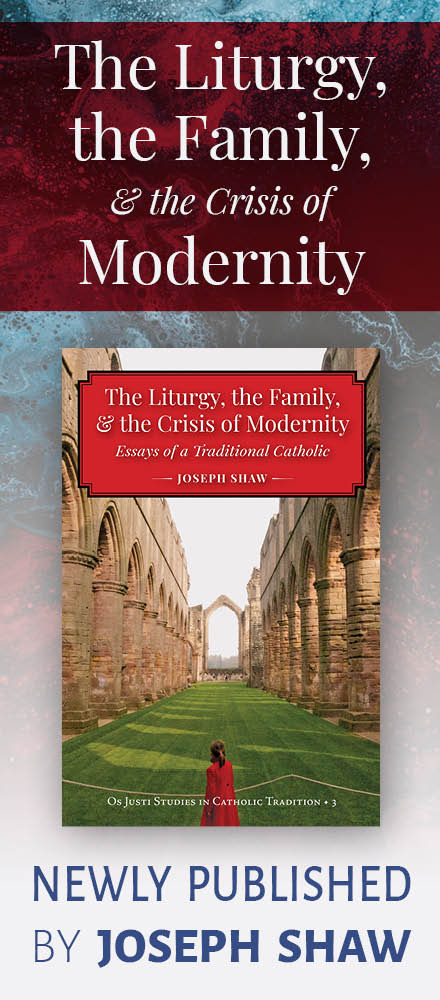Don't you just love how the Adoremus Bulletin puts the new issue online the same time it is printed? Helen Hitchcock, the publisher, has thought through the meaning of online information and realized what many publications do not. The goal is to get the information out there, she realized, not withhold it from people. Online and print publications are complements, not substitutes. I think with Ms Hitchcock what we have is a great disposition at work: a true evangelist. This is a model!
By the way, the technology of the Adoremus site is nothing fancy. No databasing, no stylesheet, no fancy anything. Just old fashioned html, without so much as an RSS feed. But there it is: you get just what you want: the text.
In any case, the April issue is up:
News
Liturgy, Laity, and the Sacramental Sense by Russell Shaw: "We’ve been trying to do something that was certain to fail. We tried to have full, conscious, active participation without cultivating the sacramental sense."
Liturgy and Sacred Music by Joseph Cardinal Ratzinger/Benedict XVI: "Music has become today the decisive vehicle of a counter-religion and thus the scene of the discernment of spirits in a form that we could not have suspected a generation ago. Because rock music seeks redemption by way of liberation from the personality and its responsibility, it takes, in one respect, a very precise position in the anarchical ideas of freedom which predominate today in a more unconcealed way in the West than in the East. But precisely for that reason, it is thoroughly opposed to the Christian notion of redemption and of freedom as its exact contradiction. Not for aesthetic reasons, not from reactionary obstinacy, not from historical immobility, but because of its very nature music of this type must be excluded from the Church." And further: "One can say that Western music, from Gregorian chant through the cathedral music and the great polyphony, through the renaissance and baroque music up until Bruckner and beyond, has come from the inner wealth of this synthesis and developed it in the fullness of its possibilities."
Finally, there is a piece of mine on the dumbing down of all liturgical music, and also I address the attitude that "chant is fine for a world of poverty, sickness, and the Black Death, but we live in gleaming cities and spend our leisure hours at modern health clubs. Different times call for different music."
Friday, April 11, 2008
Adoremus Bulletin, April, online
UnknownMore recent articles:
A Medieval Hymn for EastertideGregory DiPippo
Many medieval breviaries, including those of the Sarum Use, the Cistercians, Carmelites and Premonstratensians, have a hymn for the Easter season which is not found in the Roman Breviary, Chorus novae Jerusalem by St Fulbert, bishop of Chartres, who died in 1029. The original version of the Latin text, and the English translation of John Maso...
Two Upcoming Events from the Durandus InstituteGregory DiPippo
Our friend James Griffin of The Durandus Institute for Sacred Liturgy and Music wishes all our readers a joyous Easter season, by presenting two opportunities, at least for those in southeast Pennsylvania, to celebrate.First, this coming Sunday at 5pm, there will be a solemn Vespers in the traditional Latin rite for the Second Sunday after Easter a...
Letter to a Maximalist Music Director in a Minimalist WorldPeter Kwasniewski
Auguste Danse, Study of Three Singers (detail)The following is based on a real letter.Dear Friend,I’m sorry to hear that you’re experiencing some “ups and downs” with regard to the liturgy there, though it’s hardly surprising in a way. Your diocese is not well known for liturgical propriety or taste, and, beyond that, priests mostly have control ov...
The Tomb of St Peter Martyr in Milan’s Portinari ChapelGregory DiPippo
Here are some great photos from our Ambrosian correspondent Nicola de’ Grandi of the Portinari Chapel at the Basilica of St Eustorgio in Milan. They were taken during a special night-time opening made possible by a new lighting system; as one might well imagine, the Italians are extraordinarily good at this sort of thing, and more and more museum...
Recommended Art History and Artistic Practice Text Books for Homeschoolers... and Everyone Else Too!David Clayton
I want to recommend the Catholic Heritage Currricula texts books to all who are looking for materials for courses in art history, art theory and artistic practice at the middle-school or high-school level. These books present a curriculum that combines art history, art theory, and a theory of culture in a Catholic way. Furthermore, they provide the...
Launching “Theological Classics”: Newman on the Virgin Mary, St Vincent on Novelty & Heresy, Guardini on Sacred SignsPeter Kwasniewski
At a time of turmoil, nothing could be better or more important than rooting ourselves more deeply in the Catholic tradition. One of my favorite quotations is by St. Prosper of Aquitaine (390-455), writing in his own age of chaos: “Even if the wounds of this shattered world enmesh you, and the sea in turmoil bears you along in but one surviving shi...
Low Sunday 2025Gregory DiPippo
With his inquisitive right hand, Thomas searched out Thy life-bestowing side, O Christ God; for when Thou didst enter while the doors were shut, he cried out to Thee with the rest of the Apostles: Thou art my Lord and my God. (The Kontakion of St Thomas Sunday at Matins in the Byzantine Rite.)Who preserved the disciple’s hand unburnt when he drew n...
The Easter Sequence Laudes SalvatoriGregory DiPippo
The traditional sequence for Easter, Victimae Paschali laudes, is rightly regarded as one of the greatest gems of medieval liturgical poetry, such that it was even accepted by the Missal of the Roman Curia, which had only four sequences, a tradition which passed into the Missal of St Pius V. But of course, sequences as a liturgical genre were extre...
The Paschal Stichera of the Byzantine Rite in EnglishGregory DiPippo
One of the most magnificent features of the Byzantine Rite is a group of hymns known as the Paschal stichera. These are sung at Orthros and Vespers each day of Bright Week, as the Easter octave is called, and thenceforth on the Sundays of the Easter season, and on the Leave-taking of Easter, the day before the Ascension. As with all things Byzantin...
Medieval Vespers of EasterGregory DiPippo
In the Breviary of St Pius V, Vespers of Easter Sunday and the days within the octave present only one peculiarity, namely, that the Chapter and Hymn are replaced by the words of Psalm 117, “Haec dies quam fecit Dominus; exsultemus et laetemur in ea. – This is the day that the Lord has made; let us be glad and rejoice therein.” In the Office, this...




















